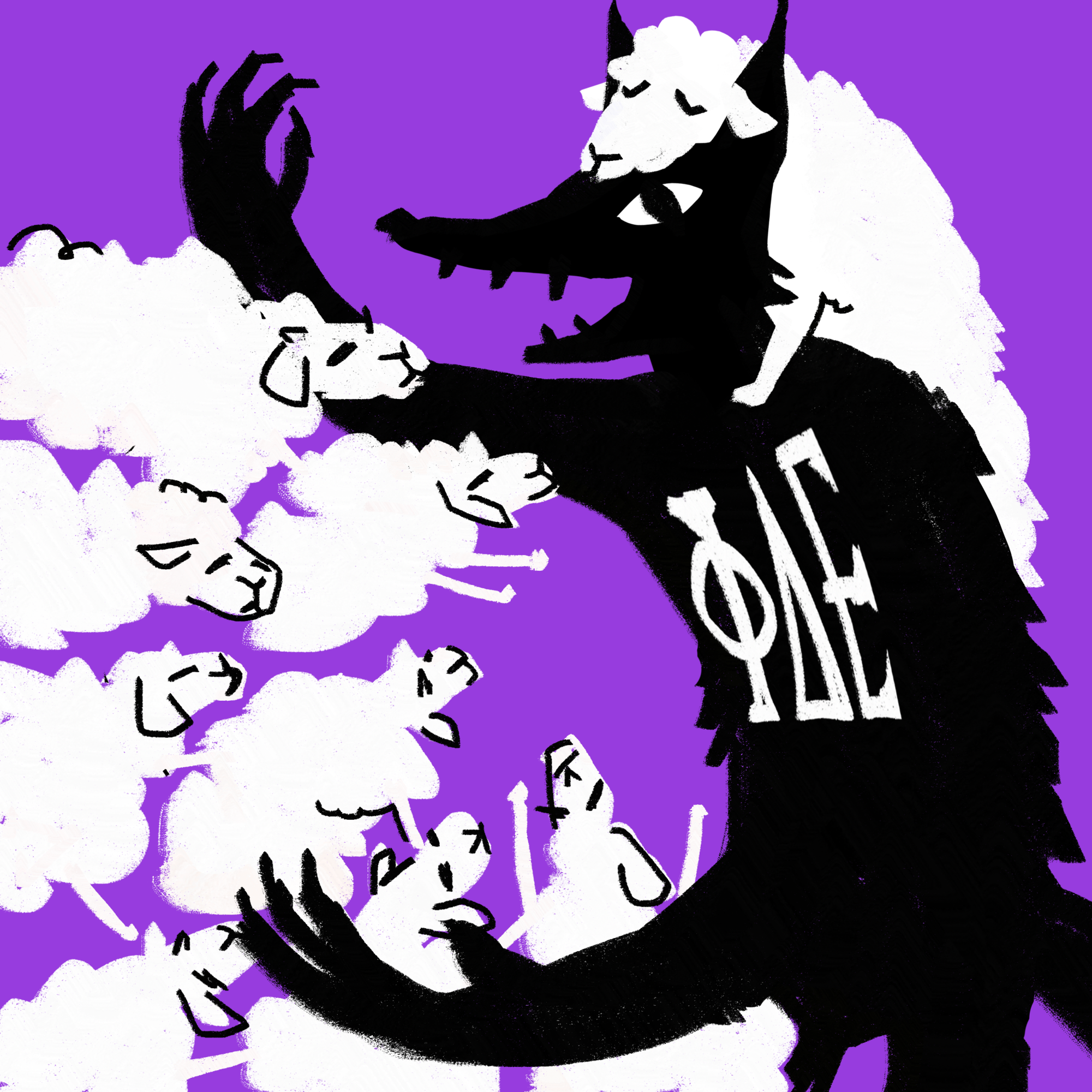As any student at Case Western Reserve University will tell you, this is not an easy school. The academics are grueling, the weather is unforgiving and the social scene can sometimes feel isolating. For pre-med students, the challenges are even greater. Drawn in by the prestige of institutions such as Cleveland Clinic, University Hospitals and CWRU School of Medicine, many students come here with dreams of becoming doctors. They’re met with the infamous pre-med stereotype: the ruthless, grade-obsessed competitor who will do anything to secure a spot in medical school.
Phi Delta Epsilon (PhiDE) is a pre-medical fraternity that claims to offer mentorship, guidance and a supportive community for pre-med students. On paper, it sounds like the antidote to the cutthroat pre-med culture. PhiDE’s new president, third-year biomedical engineering major Creed Roschyk, says that the organization’s mission is to foster collaboration and support among aspiring doctors. “In my opinion, it’s just to be able to work with a group of students that are trying to achieve the same goals as you, right?” Roschyk said. “There’s very much a stereotype within the pre-medical community of students working against each other, and I think the goal of PhiDE is to do the opposite of that and really work with each other.”
But what happens when the rhetoric doesn’t match reality? Rather than providing a sanctuary from toxic pre-med culture, PhiDE seems to replicate it. Members and former members consistently describe the organization as cliquish, hierarchical and overly competitive. “It [PhiDE] perpetuates cliques and discourages actual camaraderie because everything is hyper-facilitated,” one past member said.
Even the rush process reflects these issues. Rushing PhiDE includes information sessions, mixers, service events, coffee chats and an invite-only dinner and interview. Critics argue that the process disproportionately favors those who can confidently “say the right things” during the invite-only stages and successfully navigate hour-long interviews. These individuals, by virtue of their polished presentation and familiarity with the system, may not need as much guidance in the medical school application process. Meanwhile, students who might not stand out as much or struggle with the high-pressure environment—yet could significantly benefit from PhiDE’s mentorship and resources—are often left behind. Thus, PhiDE tends to favor individuals who already have advantages in navigating the path to medical school, further widening the divide between more and less privileged applicants.
What’s most troubling, however, is the effect that PhiDE’s culture has on its own members. Instead of alleviating the stresses of the pre-med journey, the fraternity has been described as amplifying them. The same competitive and hierarchical tendencies that PhiDE claims to fight against can leave members feeling inadequate or unsupported. “It’s ironic,” said a former member. “We joined to avoid the cutthroat pre-med culture, but we ended up finding it in PhiDE.”
One member recounted a harrowing experience: “I don’t even know how to put into words what happened. I joined PhiDE hoping it would help me on my journey to becoming a doctor, and at first, I thought it would. But instead, they gave me bad study advice, spread lies about my friends and made cruel, targeted comments about me—going so far as to use my family’s personal business to tear me down.”
These behaviors are not just harmful; they’re antithetical to the values of compassion and empathy that doctors should embody. Roschyk acknowledged that PhiDE has a reputation for perpetuating toxic pre-med stereotypes. “I’ve heard it, obviously, I think most of our members have, and it makes me sad,” he said. “I know it makes some other members sad, and that’s not who we are as an organization.”
But words are not enough. If PhiDE truly wants to live up to its mission, it must stop pretending like it already does. The fraternity and its new executive board need a radical cultural shift—one that prioritizes authenticity, inclusivity and genuine support over hierarchy and competition. Without such change, PhiDE risks becoming a cautionary tale of what’s wrong with pre-med culture rather than a beacon of hope.
When Roschyk spoke about PhiDE’s goals, he repeatedly emphasized the desire to break the stereotype of pre-med students working against one another. “The goal of PhiDE is to do the opposite of that and really work with each other,” he claimed. He said this with passion, expressing a genuine belief in the potential for collaboration and mutual support. Yet, when considering the actual culture within PhiDE, it’s clear that the fraternity is doing the exact opposite of what Roschyk advocates for.
The reality within PhiDE contradicts the president’s well-intentioned words. The rush process, which favors those who already excel in navigating competitive environments, does little to support those who truly need mentorship and guidance, and the culture is more about advancing personal agendas at the expense of others than collaboration and shared growth. The fraternity continues to foster an environment of exclusivity and perpetuates a competitive hierarchy rather than the collaborative ethos that Roschyk so passionately describes. If PhiDE truly wants to be a place of support, as Roschyk claims it is, it needs to put its money where its mouth is. Actions speak louder than words.
The fraternity needs to take a hard look at itself and recognize the gap between its self-perception and the experiences of its members. Pretending to be supportive is not enough. To truly foster the community and mentorship that pre-med students need, PhiDE must embrace authenticity over performative gestures and prioritize real support over status.
If PhiDE wants to be different, it needs to stop pretending it already is—and start proving it.
Disclaimer: This Editorial was written by a current member of PhiDE.


